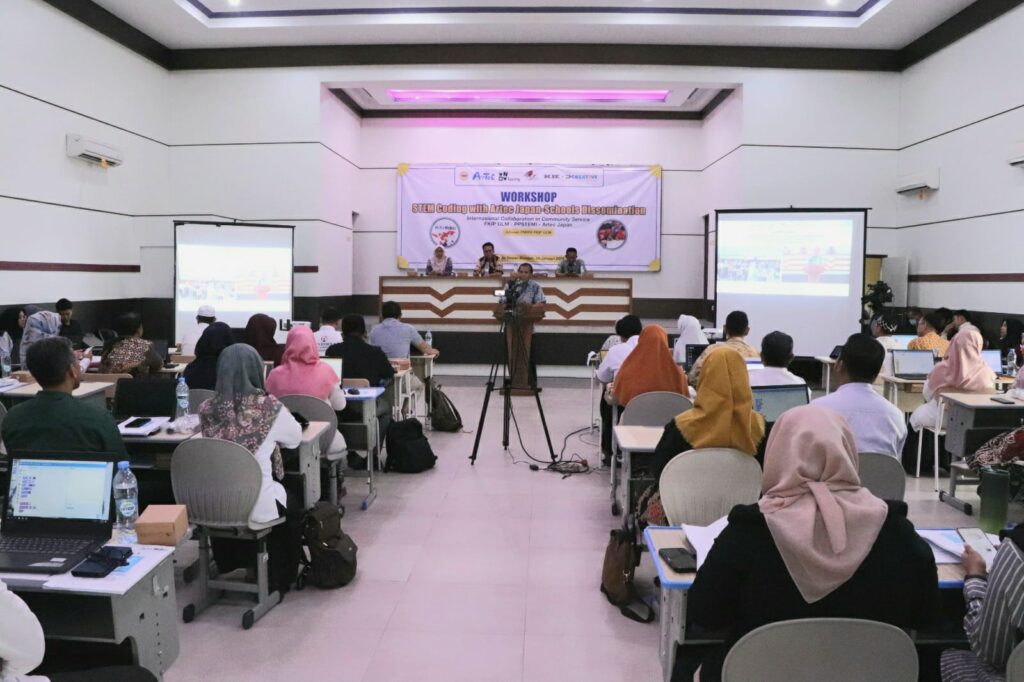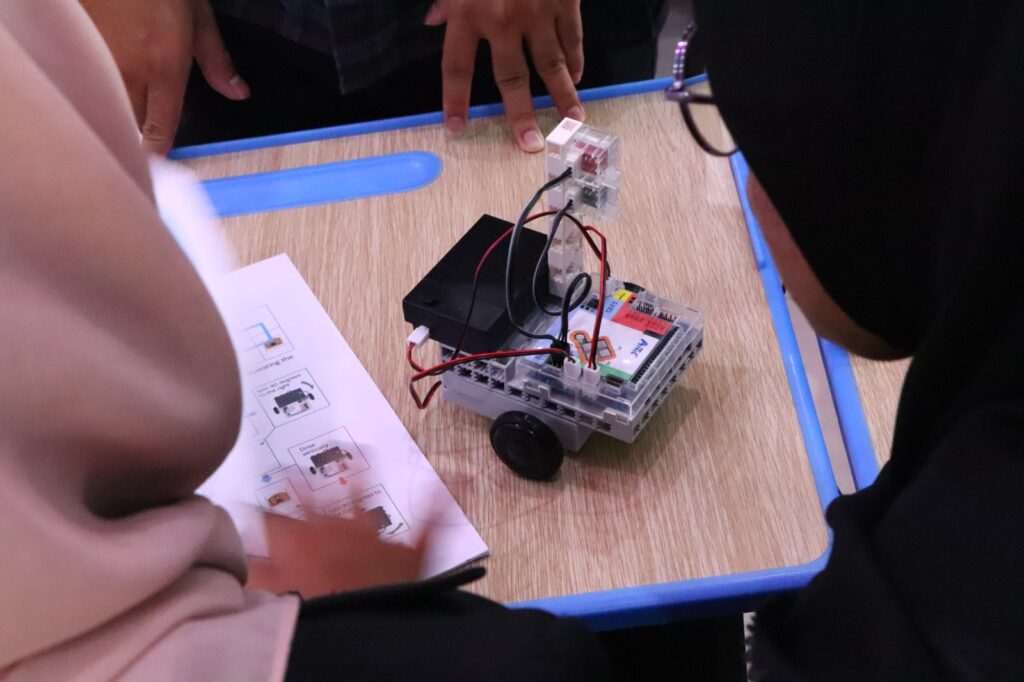24/01/2024

Banjarmasin – In order to implement the international collaboration between the Department of Mathematics and Natural Sciences Education (JPMIPA), Faculty of Teacher Training and Education (FKIP), Lambung Mangkurat University (ULM), PPSTEMI (Association of Indonesian Mathematics Engineering Science Technology Activists), Artec Japan, and WOW Singapore, Wednesday, January 24, 2024, STEM Coding Robotic Training for teachers was held in the format of international collaboration-community service for science, math, IT, and workshop teachers in a number of schools in Banjarmasin. This activity was held in a hybrid manner where teachers who practiced with tools imported directly by Artec, conducted offline training in Hasan Bondan Hall FKIP ULM, while resource persons and other participants followed online at the zoom conference.
This activity was also simultaneously carried out in 12 other universities in Indonesia and was carried out in order to foster the creativity of teachers and later, students, in science technology-based learning. In FKIP ULM, this activity was initiated by Atiek Winarti, Professor of the Chemistry Education Study Program (PS) where she became one of the STEM activists from South Kalimantan and was carried out by JPMIPA in collaboration with the faculty at UPKH (Cooperation and Public Relations Management Unit) and received full support from the leadership of FKIP ULM.
The speakers in this activity were Ms. Jane Soh from WOW Singapore, Mr. Alex Groms from Artec Japan, and Arif Hidayat, Ph.D.Edu. from PPSTEMI. The activity took place from 08.00-17.00 WITA. A total of 40 teachers practiced coding to build interesting robotic installations. They came from, among others, SMPN 1 Banjarmasin, SMPN 18 Banjarmasin, SMPN 32 Banjarmasin, SMAN 2 Banjarmasin, SMAN 3 Banjarmasin, SMAN 7 Banjarmasin, SMK Muhammadiyah 3 Banjarmasin, Global Islamic School, SMA IT Ukhuwah, SMAN Banua, SMA Frater Don Bosco, to name a few, as well as a number of other schools in Banjarmasin.
According to the head of the committee who is also the head of the JPMIPA Department, Syahmani, this activity aims to train PMIPA students and teachers related to STEM-coding to improve students’ literacy skills. In addition, to achieve KPIs, especially the results of lecturers’ work used by the community (KPI 5), as well as partnerships with world-class partners (KPI 6). “The activity was carried out successfully and smoothly because it was supported by FKIP ULM, solid teamwork from the committee from the PMIPA department, UPKH, and the participant assistance team. The enthusiasm and interest of teachers, lecturers, and students in this activity is very high. This activity was attended by 150 participants consisting of 110 offline participants consisting of 24 students and 37 MIPA teachers, 49 lecturers or tendik, and 40 participants who participated online, “he said.
Syahmani also hopes that this activity will be able to equip participants with theoretical and practical material, understanding STEM literacy, and STEM coding to develop participants’ critical thinking, creative, collaborative, communicative, and problem-solving skills through four training sessions in the workshop. “We are optimistic to continue to collaborate and commit to developing STEM in Indonesia, especially in South Kalimantan in the form of a STEM study center/unit to facilitate various STEM research, service, and training activities,” he added.
Meanwhile, one of the participants, Niko Rahmad Aprilyanto from GIBS (Global Islamic Boarding School) admitted that he was very enthusiastic about this activity. “This event is very interesting. Teachers are interested, let alone I imagine if this is tried on children. I imagine a very dynamic and collaborative class when implementing something like this, it just needs access to the tool-kit. The general idea is interesting to be able to solve problems with basic coding, just assemble like a puzzle. But to compose it, logic must be developed, so it’s not just playing but also problem solving, and very interesting for children,” he said. (admin)

